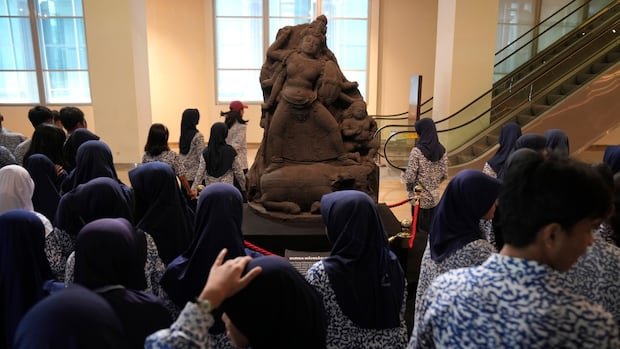The Dutch government has approved the repatriation of thousands of fossils to Indonesia from a renowned collection following a commission’s ruling that determined the fossils were taken during the colonial era without the consent of the local population, as announced by the education ministry on Friday.
The collection in question, known as the Dubois Collection, holds significant historical value, including a skull fragment discovered on the island of Java in the Solo River, recognized as the earliest fossil evidence of Homo erectus, an ancestor of Homo sapiens commonly referred to as “Java Man.”
This decision to return over 28,000 fossils to Indonesia represents the Dutch government’s ongoing efforts to return artworks and artifacts taken, often forcefully, from various countries during colonial times.
The fossils were excavated by Dutch anatomist and geologist Eugene Dubois in the late 19th century when Indonesia was under Dutch colonial rule.
After a thorough investigation, the Dutch Colonial Collections Committee determined that the fossils were likely obtained against the will of the local population, constituting an act of injustice. The fossils held both spiritual and economic significance for the locals, who were coerced into disclosing the locations of fossil sites.
The agreement to return the fossils was finalized on Friday by Minister of Education, Culture and Science Gouke Moes and his Indonesian counterpart Fadli Zon at the Naturalis museum in Leiden, where the collection is currently housed. Moes emphasized the importance of scientific research and collaboration between Indonesia and the Netherlands in facilitating a smooth transfer process.
In a separate event on the same day, Indonesia’s President Prabowo Subianto met with Dutch King Willem-Alexander and Queen Maxima at their palace in The Hague.
Homo erectus, originating in Africa around two million years ago, migrated to various regions, including Asia and possibly Europe. The species arrived in Java over 1.5 million years ago, with dating indicating their extinction at least 35,000 years before the emergence of Homo sapiens on the island.
The return of stolen artifacts and objects by the Netherlands is not a new initiative. In recent years, the country has repatriated numerous items taken during its colonial past, including hundreds of objects to Indonesia and Sri Lanka in 2023 and additional artifacts to Indonesia in 2024, such as four Hindu-Buddhist sculptures.
Several Western nations are also engaging in the return of looted artifacts as part of reconciling with their colonial legacies. For instance, France returned three skulls of Indigenous warriors to Madagascar, marking the first application of a 2023 French law regarding the repatriation of human remains from former colonies.
Efforts for repatriation have gained momentum globally, with institutions and nations acknowledging the importance of returning cultural heritage to their rightful places. In Canada, while repatriation progresses on a case-by-case basis without federal legislation, museums like the Royal Ontario Museum have returned possessions to Indigenous communities, highlighting the ongoing dialogue surrounding the rightful ownership of cultural artifacts and remains.

